The How to Be a Strong Applicant event provides practical advice for undergraduate and postgraduate students on writing applications and honing interview skills for postgraduate scholarships or at any stage of your career.
We recommend checking out the recording of the 2024 event below, find answers to your questions in the FAQs, or discover additional online courses for PG students.
2024 Event
How to Be a Strong Applicant
13:00-16:00, Wednesday 6 November 2024
2024
Past Events
Wednesday 1 November 2023 - How to Be a Strong Applicant
Online Event
This panel event took place on 1 November 2023, to provide practical advice for students on writing applications and interview skills for postgraduate scholarships and applications. Watch the recording to learn more.
Wednesday 2 November 2022 - How to Be a Strong Applicant
Online Event
This panel event is back for another year to provide practical advice for students on writing applications and interview skills for postgraduate scholarships and applications. It is a good opportunity to learn about what’s available and to start thinking about drafting an application. It may feel very early to be thinking about next steps, however most scholarship applications close in December and early January, so it’s a good time to learn about what’s available and also to start thinking about drafting an application.
This event will be held online via MS Teams Live Events and is predominately aimed at current Master’s and final year undergraduate students. Further details on this event will be available closer to the time.
Wednesday 10 November 2021 - How to Be a Strong Applicant
13:00 - 16:00, Online Event
Predominantly aimed at Master’s and final year undergraduate students, our popular panel event is back for another year to provide practical advice for students on writing applications and interview skills for postgraduate scholarships. This may feel very early to be thinking about next steps, however most scholarship applications close just before Christmas or early in the new year, so it’s a good time to learn about what’s available and also to start thinking about drafting an application.
|
Preparing for your application
|
Writing an effective application
|
Delivering a good interview
|
Our panel: Professor Laki Buluwela, Ms Katie Dallison, Dr Liz Elvidge, Dr Angela Kedgley, Professor Myra McClure, Professor Alan Spivey, Dr Jeffrey Vernon
Panellists will share their experience of personal statements in general, interview preparation and presentations, influencing skills, communicating clearly, body language – all skills that will help in your career. Please do come with your own questions for the panel.
Wednesday 13 October 2021 - PG Connections Welcome Event
17:00 - 18:00, Online Event
Once again we ran our faculty postgraduate welcome event at the start of the Autumn term, introducing new students to some of the support and services available within the College. This year we welcomed:
- Magdalena Jara, Head of Pedagogy, and Paul Seldon, Senior Teaching Fellow, Graduate School
- Michael Gainsford, Library Manager and Liaison Librarian (Medicine), Library
- Katie Dallison, Careers Consultant;
- Imperial College Career Services
- Attributes and Aspirations online course
- Adapt to Postgrad online course
- James Perry, Sport Development Manager, MOVE Imperial
Programme
17:00 - Welcome to Imperial College London
17:05 - What is 'PG Connections' and why should I attend? - Dr Jeffrey Vernon
17:15 - Presentations - What does the Faculty of Medicine have to offer you?
17:45 - Q&A
Wednesday 4 November 2020 - How to Be a Strong Applicant
13:00 - 16:00, Online Event
This session is aimed at masters’ and final year undergraduate students. Senior members of Faculty and other parts of College will be taking time out of their busy schedules to provide you with a wealth of advice and tips for any future applications. This may feel very early to be thinking about next steps, however, most scholarship applications close just before Christmas or early in the new year, so it’s a good time to learn about what’s available and also to start thinking about drafting an application. You may not be ready to apply for scholarships this year, and the advice at this session certainly does not relate exclusively to scholarships.
You can download the How To Be a Strong Applicant programme 2020 (PDF) here. It also contains biographies of all our speakers as well as further information and links for funding and support during your postgraduate studies at Imperial College London.
|
Preparing for your application
|
Writing an effective application
|
Delivering a good interview
|
Our panel: Professor Eric Aboagye, Professor Laki Buluwela, Dr Liz Elvidge, Professor Myra McClure, Dr Sophie Rutschmann, Ms Victoria Sood and Professor Alan Spivey. Please see the programme embedded above for detailed speaker biographies and more information.
Panellists will share their experience of personal statements in general, interview preparation and presentations, influencing skills, communicating clearly, body language – all skills that will help in your career. Please do come with your own questions for the panel.
Wednesday 14 October 2020 - PG Connections Welcome Event
17:00 - 19:00, Online Event
This online Welcome Event started with a warm welcome to our new Postgraduate Students at our first PG Connections of the year. We then showcased various services from around the College, who are there to help you during your time at Imperial. The talks were followed by breakout sessions, where you had the opportunity to meet fellow students from similar programmes.
This year we welcomed:
- Laura Lane, Head of Strategy and Operations, Graduate School
- Michael Gainsford, Library Manager and Liaison Librarian (Medicine), Library
- Zixiao Wang, President, Graduate Students' Union
- Vikki Sood, Careers Consultant, Imperial College Career Services
- James Perry, Sport Development Manager, MOVE Imperial
- Anna-Maria Jones, Education Transformation Fellow, Adapt to Postgrad online course
- Katie Dallison, Careers Consultant, Attributes and Aspirations online course
Programme
17:00 - Welcome to Imperial College London
17:10 - What is 'PG Connections' and why should I attend? - Dr Jeffrey Vernon
17:20 - Presentations - What does the Faculty of Medicine have to offer you?
18:15 - Break out rooms with fellow students and staff
‘I really enjoyed attending the PG Connections welcome event at the beginning of term last year! Prior to the guest speaker’s lecture, there was a fair showcasing some really useful services and resources across College. I had the pleasure of meeting the President of the Graduate Student’s Union and also spoke to the Careers team about some of the services they have to offer’.
- MRes Cancer Biology student about the 2019 PG Connections Welcome Event
Wednesday 6 November 2019 - How to Be a Strong Applicant
13:00 - 16:00, Lecture Theatre G16, Sir Alexander Fleming Building, South Kensington Campus
This session is aimed at masters’ and final year undergraduate students. Senior members of Faculty and other parts of College will be taking time out of their busy schedules to provide you with a wealth of advice and tips for any future applications. This may feel very early to be thinking about next steps, however, most scholarship applications close just before Christmas or early in the new year, so it’s a good time to learn about what’s available and also to start thinking about drafting an application. You may not be ready to apply for scholarships this year, and the advice at this session certainly does not relate exclusively to scholarships.
|
Preparing for your application
|
Writing an effective application
|
Delivering a good interview
|
Our panel: Dr Anil Bharath, Professor Laki Buluwela, Dr Rachel Herries, Dr Luca Magnani, Professor Myra McClure, Ms Victoria Sood
Panellists will share their experience of personal statements in general, interview preparation and presentations, influencing skills, communicating clearly, body language – all skills that will help in your career. Please do come with your own questions for the panel.
Thursday 3 October 2019 - Welcome Event
17:00 - 19:30, Lecture Theatre G16, Sir Alexander Fleming Building, South Kensington Campus
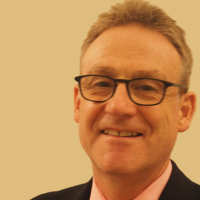
Professor Stephen Brett is Professor of Critical Care, and head of research in the Directorate of Anaesthetics and Critical Care (Imperial College NHS Trust). Professor Brett's research focuses on the ‘patient journey’, aiming to optimize long term outcomes after critical illness. His work in this field crosses the traditional boundaries between clinical medicine, physiology, mechanisms of disease, and public health.
Stephen is chief investigator for a number of clinical trials both locally and nationally. He recently led the NICE working group that published the guidelines for Rehabilitation after Critical Illness. He is President of the Intensive Care Society.
The first Postgraduate Connections event of the academic year is a chance to meet your fellow coursemates and other postgraduate students from across the Faculty of Medicine. We shall also have members of staff from the Graduate Student Union, Careers Service, Centre for Academic English, Imperial Enterprise Lab and the Student Hub to provide you with further information before the talk begins.
Wednesday 6 March 2019 - Professor Wendy Barclay, 'Influenza: A World of Outbreaks, Discovery and Controversy'
17:00 - 19:00, Lecture Theatre 1, Wolfson Education Centre, Hammersmith Campus
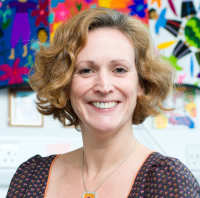
After graduating from Cambridge University, Wendy’s postgraduate study at the Common Cold Unit in Salisbury involved infecting human volunteers with cold viruses to understand why people keep getting colds year after year. In her two postdoctoral appointments, at the University of Reading and then Mount Sinai Medical Centre in New York, Wendy learned the molecular virology skills that would form the technological basis of her research career. Upon returning to Reading in 1995 to a junior lectureship, she set up her research group to study influenza viruses. In May 2007 she took up a Chair in Influenza Virology at Imperial College London.
Wendy leads The Barclay Laboratory - a member of the Imperial Network for Vaccine Research (INVaR); a hub for academia and industry to network and collaborate on vaccine development and engineering, pathogen biology, immunology, epidemiology, health economics and tackling global health challenges. She is particularly interested in the mechanism by which viruses can cross from animal sources into humans to cause new pandemics. She sits on several advisory boards, for example, offering advice about respiratory virus outbreaks and also work with the Science Media Centre, whose aim is to improve the relationship between scientists and the media.
As part of this media engagement, you can hear Wendy talking about the flu virus on The Life Scientific with Jim Al-Khalili, recorded last year and currently still available on BBC Sounds.
Wednesday 7 November 2018 - How to Be a Strong Applicant
13:00 - 17:00, Lecture Theatre 1, Blackett Building, South Kensington Campus
This session is aimed at masters’ and final year undergraduate students. Senior members of Faculty and other parts of College will be taking time out of their busy schedules to provide you with a wealth of advice and tips for any future applications. This may feel very early to be thinking about next steps, however, most scholarship applications close just before Christmas or early in the new year, so it’s a good time to learn about what’s available and also to start thinking about drafting an application. You may not be ready to apply for scholarships this year, and the advice at this session certainly does not relate exclusively to scholarships.
|
Preparing for your application
|
Writing an effective application
|
Delivering a good interview
|
Our panel: Professor Laki Buluwela, Dr Jeffrey Vernon, Victoria Sood, Dr Anil Bharath, Professor Tony Magee, Professor Myra McClure, Professor Kevin Murphy, Dr Rachel Herries, Dr Mark Ungless.
Panellists will share their experience of personal statements in general, interview preparation and presentations, influencing skills, communicating clearly, body language – all skills that will help in your career. Please do come with your own questions for the panel or send us a question beforehand on the registration form.
Thursday 4 October 2018 - Professor Terry Tetley, 'The Changing Face of Air Pollution'
17:30 - 19:30, Lecture Theatre G16, Sir Alexander Fleming Building, South Kensington Campus
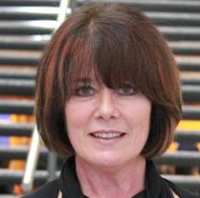 Professor Tetley belongs to the MRC-HPA Centre for the Environment and Health at Imperial College and the NIHR-HPRU on the Health Impact of Environmental Hazards ( both joint with KCL). Her research focuses on the cellular and molecular mechanisms of pulmonary diseases related to inhaled toxicants, including cigarette smoke, asbestos, ambient particulate air pollution and engineered nanoparticles. She initiated the Imperial College strategy on “Nanoparticles and Health” in 2006. This involves scientists from all Faculties has led to international collaborations in the EU and USA. A major aim is to identify which features of engineered nanomaterials will deliver safer products.
Professor Tetley belongs to the MRC-HPA Centre for the Environment and Health at Imperial College and the NIHR-HPRU on the Health Impact of Environmental Hazards ( both joint with KCL). Her research focuses on the cellular and molecular mechanisms of pulmonary diseases related to inhaled toxicants, including cigarette smoke, asbestos, ambient particulate air pollution and engineered nanoparticles. She initiated the Imperial College strategy on “Nanoparticles and Health” in 2006. This involves scientists from all Faculties has led to international collaborations in the EU and USA. A major aim is to identify which features of engineered nanomaterials will deliver safer products.
As always, the talk and Q&A will be followed by a drinks reception, giving you an opportunity to meet and mix with the new cohort of PG students as well as current students and Faculty of Medicine staff.
Thursday 31 May 2018 - Professors Bill Cookson and Miriam Moffatt, 'Asthma: Genomes, Metagenomes, and Adventures on Either Side of the Airway Barrier'
17:00 - 19:00, Lecture Theatre 2, Wolfson Education Centre, Hammersmith Campus
William Cookson is Professor of Genomic Medicine, and Miriam Moffatt is Professor of Respiratory Genetics, both based at the National Heart and Lung Institute. Miriam is a microbiologist by background, and Bill is a medical doctor who crossed over to genetics. This combination of priorities led to their long-standing collaboration on the basis of asthma and other allergic diseases, and they were the first holders of a joint Wellcome Trust senior investigator award. Their work has led to clues about the cellular origin and the treatment of asthma, and the way that environmental or lifestyle factors might modify the underlying gene expression. Their PG Connections appearance will offer intriguing insights into the way that the body interprets outside influences and the way that problems in biomedicine can be tackled by merging scientific approaches.
Thursday 15 March 2018 - Professor Lord Robert Winston, 'Is There Still a Place for Old-fashioned Medicine?'
17:00 - 19:00, Lecture Theatre G16, Sir Alexander Fleming Building, South Kensington Campus
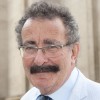 Lord Winston is Professor of Science and Society and Emeritus Professor of Fertility Studies at Imperial College London. In the 1970s he developed gynaecological surgical techniques that improved fertility treatments. He later pioneered new treatments to improve in vitro fertilisation (IVF) and developed pre-implantation diagnosis. This allowed embryos to be screened for genetic diseases and has allowed parents carrying faulty genes to have children free of illnesses such as cystic fibrosis. He now runs a research programme at the Institute of Reproductive and Developmental Biology at Imperial College that aims to improve human transplantation. Robert Winston has over 300 scientific publications about human reproduction and the early stages of pregnancy. Robert Winston is also Chairman of the Genesis Research Trust – a charity which raised over £13 million to establish the Institute of Reproductive and Developmental Biology and which now funds high-quality research into women’s health and babies.
Lord Winston is Professor of Science and Society and Emeritus Professor of Fertility Studies at Imperial College London. In the 1970s he developed gynaecological surgical techniques that improved fertility treatments. He later pioneered new treatments to improve in vitro fertilisation (IVF) and developed pre-implantation diagnosis. This allowed embryos to be screened for genetic diseases and has allowed parents carrying faulty genes to have children free of illnesses such as cystic fibrosis. He now runs a research programme at the Institute of Reproductive and Developmental Biology at Imperial College that aims to improve human transplantation. Robert Winston has over 300 scientific publications about human reproduction and the early stages of pregnancy. Robert Winston is also Chairman of the Genesis Research Trust – a charity which raised over £13 million to establish the Institute of Reproductive and Developmental Biology and which now funds high-quality research into women’s health and babies.
Wednesday 5 December 2017 - Professor Anne Lingford-Hughes, 'Investigating the Neurobiology of Addiction to Improve Treatment'
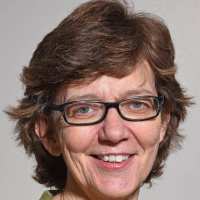 Professor Anne Lingford-Hughes is Head, Centre for Psychiatry and Professor of Addiction Biology at Imperial College London. She is also a Consultant Psychiatrist with a particular interest in pharmacological treatments of alcohol problems and other substance addictions at Central North West London NHS Foundation Trust. Her research has focused on using neuroimaging and neuropharmacological challenges to characterize the neurobiology of addiction. In particular she has used positron emission tomography (PET) and MR to characterize the dopamine (DRD2, DRD3), opioid (mu), GABA-benzodiazepine (a5 subtype), GABA-B, NK1 receptor systems in a range of substance addictions including alcoholism, cocaine and opiate dependence as well disordered gambling. More recently she has been exploring neuroinflammatory processes and amyloid deposition in alcoholism. The aim of her research programme is to better understand neurobiology underpinning these disorders to improve treatment.
Professor Anne Lingford-Hughes is Head, Centre for Psychiatry and Professor of Addiction Biology at Imperial College London. She is also a Consultant Psychiatrist with a particular interest in pharmacological treatments of alcohol problems and other substance addictions at Central North West London NHS Foundation Trust. Her research has focused on using neuroimaging and neuropharmacological challenges to characterize the neurobiology of addiction. In particular she has used positron emission tomography (PET) and MR to characterize the dopamine (DRD2, DRD3), opioid (mu), GABA-benzodiazepine (a5 subtype), GABA-B, NK1 receptor systems in a range of substance addictions including alcoholism, cocaine and opiate dependence as well disordered gambling. More recently she has been exploring neuroinflammatory processes and amyloid deposition in alcoholism. The aim of her research programme is to better understand neurobiology underpinning these disorders to improve treatment.
Wednesday 8 November 2017 - How To Be a Strong Applicant
13:00 - 16:30, Lecture Theatre G16, Sir Alexander Fleming Building, South Kensington Campus
This session is aimed at masters’ and final year undergraduate students. Senior members of Faculty and other parts of College will be taking time out of their busy schedules to provide you with a wealth of advice and tips for any future applications. This may feel very early to be thinking about next steps, however most scholarship applications close just before Christmas or early in the new year, so it’s a good time to learn about what’s available and also to start thinking about drafting an application.
You may not be ready to apply for scholarships this year, and the advice at this session certainly does not relate exclusively to scholarships. Panellists will share their experience of personal statements in general, interview preparation and presentations, influencing skills, communicating clearly, body language – all skills that will help in your career. Please do come with your own questions for the panel or send us a question beforehand on the registration form.
Friday 6 October 2017 - Professor Mary Morrell, 'The Impact of Sleep Breathing and Brain Function - An Inspiring Journey!'
17:00 - 19:00, Lecture Theatre 1, Wolfson Education Centre, Hammersmith Hospital Campus
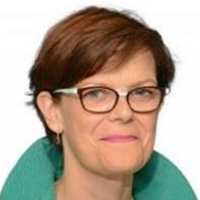 Professor Morrell’s research is focused on the causes and consequences of breathing disorders of sleep. Her group focuses on a disease called obstructive sleep apnoea that causes people to stop breathing when they’re asleep, sometimes hundreds of times a night. Each apnoea is terminated by an arousal from sleep. Cumulatively, the awakenings can lead to sleepiness during the day, also increased risk of cardiovascular disease and even strokes. In younger people obstructive sleep apnoea and sleep disorders in general can impair learning and in older people they may accelerate cognitive decline. This could mean that the impact of sleep apnoea is especially significant in older people. Professor Morrell and her collaborators are currently studying this aspect of the disease; do come and hear about her studies to date and future areas of research.
Professor Morrell’s research is focused on the causes and consequences of breathing disorders of sleep. Her group focuses on a disease called obstructive sleep apnoea that causes people to stop breathing when they’re asleep, sometimes hundreds of times a night. Each apnoea is terminated by an arousal from sleep. Cumulatively, the awakenings can lead to sleepiness during the day, also increased risk of cardiovascular disease and even strokes. In younger people obstructive sleep apnoea and sleep disorders in general can impair learning and in older people they may accelerate cognitive decline. This could mean that the impact of sleep apnoea is especially significant in older people. Professor Morrell and her collaborators are currently studying this aspect of the disease; do come and hear about her studies to date and future areas of research.
Wednesday 14 June 2017 - Does It Belong to You? Your Tissue, Your Genes, Your Data, Your Health
18:00 - 20:00, Lecture Theatre G16, Sir Alexander Fleming Building, South Kensington Campus
Biomedicine and data sharing are blurring the boundary between individuals, populations, health services and corporations. Government regulation is running to catch up with developments in research, technology and markets – but will this protect the individual, or place unreasonable restrictions on our own decision-making?
If I take a blood sample from you, can I sequence your DNA? Can I share your genetic data with your relatives, or another lab? Can I culture your cells without permission, and develop a new drug? If you donate your organs for research, can you restrict what happens to them after your death? Are your health records confidential? What happens to health data from e-monitoring devices? If I can crowdfund an experimental treatment in a foreign country, why can’t I take my seriously ill child abroad?
Does it belong to you? Our invited panel and the audience will explore the threats and opportunities arising from the new health landscape. Join us to share your insights into the extent and limitations of our autonomy.
Speakers will give their perspectives and take questions from the floor.
Our panellists
Mrs Heather Hanna, Research Nurse and Clinical Teaching Fellow for PG
Heather Hanna is a nurse with over 25 years of experience with specialisms in Paediatrics, Neonatal Intensive Care and Research. She has qualifications in the UK and USA in Adult and Paediatric Nursing and has practiced in both countries. Additionally, she has a Masters in Allergy from Imperial College. She has been a Clinical Teaching Fellow for PG Cert/Dip/MSc in Paediatrics and Child Health at Imperial College since 2015 and she lectures on Allergy, Ethics and End of Life Care. Her interest in Ethical issues stems from her practical experiences as a nurse and her strong desire to teach about ethics and help her students to identify practical ways of approaching ethical dilemmas.
Dr Wing May Kong, Honorary Senior Lecturer in Endocrinology and Ethics, Imperial College
Dr Kong is a consultant endocrinologist at the Central Middlesex Hospital, and Head of Ethics and Law for Undergraduate Medicine with this theme running vertically through all 6 years of undergraduate medicine at Imperial. Her team has been running a BSc module 'Death, Autopsy and the Law' since 2011 which provides an opportunity for students to explore and analyse ethical and legal issues around death, dying and the dead body. She is co-course leader for a new Humanities, Philosophy and Law BSc which starts this September. Dr Kong is Chair of the Institute of Medical Ethics (IME), a charity that promotes the discussion and application of medical ethics in clinical practice through research and education. The IME has published a core curriculum for medical ethics and law, for use in medical schools and supports postgraduate bioethics researchers through grants and an annual research conference.
Dr Dagmar Tapon, Registered Genetic Counsellor, Centre for Fetal Care, Queen Charlotte's and Chelsea Hospital
Dagmar works as a prenatal genetic counsellor at Queen Charlotte's & Chelsea Hospital. She advises couples who face a chance of genetic condition in the pregnancy about their options. She teaches on the BSc and MSc course of Reproductive and Developmental Biology and the MSc in Genomic Medicine at Imperial College. Dagmar is the local lead for the national RAPID research study to develop new methods of prenatal testing, including non-invasive prenatal testing (NIPT). She was an invited participant at a stakeholder meeting of the Nuffield Council on Bioethics report on NIPT. Dagmar is also local PI for the Prenatal Assessment of Genomes and Exomes (PAGE) study that evaluates at the feasibility of genome/exome sequencing in prenatal testing. The study includes looking at the ethical aspects of such new testing strategies.
Professor Gerry Thomas, Professor of Molecular Pathology at Imperial College and Module Lead for Ethics, Law and Societal Issues for Imperial’s MSc in Genomic Medicine
Gerry Thomas is Professor of Molecular Pathology at Imperial College London. She is committed to developing infrastructures for molecular pathology research, both for use by her own research group but also by others. She strongly believes that public involvement and information is a key part of academic research, and is actively involved in the public communication of research, particularly with respect to radiation protection, and biobanking. Gerry is the module lead for Ethics, Law and Societal Issues for Imperial’s MSc in Genomic Medicine, and is an adviser to several international Biobanking initiatives, including the Integrated Biobank of Luxembourg. She is the Designated Individual for the HTA Licence that covers research across the whole of Imperial College London’s campuses.
Her initial research work focused on animal models of cancer, in particular thyroid cancer. She has carried out research into the health effects of the Chernobyl accident since 1992, and established the Chernobyl Tissue Bank (CTB: www.chernobyltissuebank.com) in 1998. The CTB has provided infrastructural support (both physical and ethical) in Belarus, Ukraine and Russia for thyroid cancer diagnosis and research into the molecular mechanisms that underlie the increase in thyroid cancer seen after the Chernobyl accident. The project provides a platform for a systems biology approach to exploring these mechanisms and supports tissue collection for international epidemiology studies. Gerry has published extensively on the molecular pathology of thyroid cancer, and is an author/editor of a number of reviews of the health effects of radiation exposure following nuclear accidents. Following the Fukushima accident, she was asked to explain the health risks of radiation on both broadcast and written media in the UK and internationally. She was invited to speak at the Expert Meeting on the Health Effects of Radiation held in Fukushima in September 2011, and was invited by the UK Chief Scientist’s Office to join the UK-Japan dialogue on nuclear energy in 2012. She is also a Distinguished Fellow of the Institute of Energy and Economics of Japan.
Mr Fraser Wilson, Member of the Imperial College Research Ethics Committee and the Health Research Authority Medical Ethics Research Committee
I have served as a lay member of the Imperial College Research Ethics Committee since 2015 and of a Health Research Authority Medical Ethics Research Committee since 2014. I read literature and philosophy at University. My main career was in the UK Government’s security and intelligence community, latterly at Director-General level, responsible for the effective and proper conduct of a wide range of sensitive techniques and operations. I found the scrupulous ethical consideration that such activities required - to safeguard the interests of the citizen and to satisfy high standards of public accountability - particularly fascinating. And I have since enjoyed extending my ethical specialisation into medical research, where the measurement of proportionality, of competing harms and of the public interest plays a similarly central role.
Wednesday 5 April 2017 - Science and its Discontents: The Gap Between Science and Society
17:30 - 20:00, Lecture Theatre 1, Wolfson Education Centre, Hammersmith Hospital Campus
Panel discussion about the reception of science stories by the media and the public. What, if anything, might be done about this gap between research and its reception? Does the public need to understand science at all? Should lay panels have a veto in grant applications?
Speakers will give their perspectives and take questions from the floor.
Our panellists
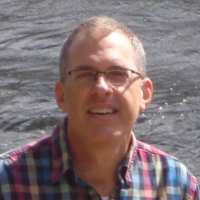 Dr Toby Andrew, Department of Genomics of Common Disease, Imperial College London
Dr Toby Andrew, Department of Genomics of Common Disease, Imperial College London
Dr Toby Andrew is a Lecturer in Human Genetics at the Department of Genomics of Common Disease, Imperial College, where he is a Principle Investigator and course organiser for the MSc in Human Molecular Genetics. Trained in Biology (BSc. Leeds 1985), Biological Computing (MSc. York, 1989) and Human Genetics (PhD. KCL, 2005) his research interests focus on gene mapping methods and the genetics of mitochondrial function in relation to health and disease, such as diabetes. At the PG connections forum he will defend the importance of “curiosity-driven” science and question why such an intellectually uncontentious idea has now become so contentious.
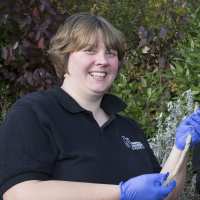 Victoria Burton, Natural History Museum and Imperial College London
Victoria Burton, Natural History Museum and Imperial College London
I am postgraduate researcher within the Science and Solutions for a Changing Planet DTP and the Department of Life Sciences at Imperial College. My PhD research investigates how soil and leaf-litter biodiversity responds to land-use change. I was previously a distance learner with the Open University (BSc. 2011) and do not see the public and scientists as separate groups. As part of this philosophy I run a citizen science project - Earthworm Watch - in partnership with the Natural History Museum, London and Earthwatch Institute, to directly involve the public with my research.
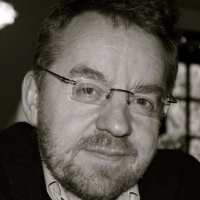 Professor Stephen Curry, Department of Life Sciences, Imperial College London
Professor Stephen Curry, Department of Life Sciences, Imperial College London
I'm a Professor of Structural Biology in the Department of Life Sciences at Imperial College, primarily interested in mechanisms of RNA virus replication. I am also involved in writing about and campaigning on issues related to the ‘business’ of science, such as scholarly publishing, research evaluation, and research funding. I am on the boards of the Campaign for Science and Engineering and Science is Vital. I think the gap between science and society is narrower and more interesting than many people suppose (including scientists)!
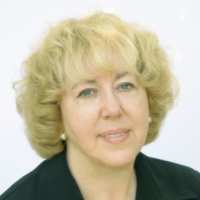 Professor Sian Harding, NHLI, Imperial College London
Professor Sian Harding, NHLI, Imperial College London
Professor Sian Harding is Professor of Cardiac Pharmacology, Head of the Division of Cardiovascular Sciences in NHLI and Director of the Imperial British Heart Foundation Cardiovascular Regenerative Medicine Centre.
Her work has centered on the myocardium in heart failure, especially beta-adrenergic mechanisms. She was PI on the first UK Gene therapy Trial in LVAD patients, aimed at improving cardiac contractility. She is now studying the pluripotent stem cell-derived cardiomyocyte, both for disease modelling and cardiac repair. Professor Harding is former President of the European Section of the International Society for Heart Research and member of the Nuffield Council on Bioethics. She has been elected Fellow of both the American Heart Association and the European Society of Cardiology, and is on the Board of the British Society of Gene and Cell Therapy.
One of the most interesting and controversial societal issues she has been involved in is the licensing of mitochondrial donation (the so-called “three parent baby”) by the HFEA. She was involved on a number of levels; from the first Nuffield Council on Bioethics working party to the support of MPs during the Parliamentary debates. After a nearly 10 year journey we now have the first license granted for one of these children to be born.
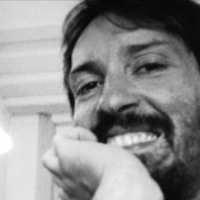 Dr Luca Magnani, Department of Surgery and Cancer, Imperial College London
Dr Luca Magnani, Department of Surgery and Cancer, Imperial College London
Luca got his PHD from Purdue University and started his lab at ICL in 2013 with a Junior Research Fellowship. His objective is to characterize the role of the chromatin landcape in oncogenesis. A second goal is to understand how cancer cells reprogram the chromatin landscape to escape treatment. Luca’s research is focused on breast cancer and he often interacts and engage with patients and the lay press. He is very aware of the fine line between communicating science to a wider audience and the risk of sensationalise the outcome of research. He is therefore very interested in exploring new avenues with the help of colleagues and the audience itself.
Wednesday 8 March 2017 - Postgraduate Careers: Imperial and Beyond
18:00 - 20:30, Lecture Theatre G16, Sir Alexander Fleming Building, South Kensington Campus
Professionals with connections to Imperial will give perspectives on the careers they have built since completing their master's or PhD studies. Panellists from a variety of organisations and industries will offer a snapshot of their career path so far before taking your questions from the floor. This will be followed by three breakout sessions offering further opportunity to interact with the panellists whose paths you are most interested in.
Event programme:
- 18.00-18.30 Registration
- 18.30-19.30 Panel discussion
- 19.30-20.00 Breakout sessions
- 20.00 Food and drink reception
If you would like to attend, please register by completing our online registration form. Spaces are limited so register early to avoid disappointment.
Our panellists
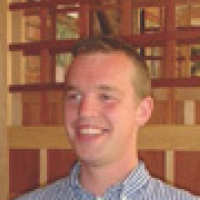 Dr Thomas Clarke, Royal Society and Wellcome Trust Sir Henry Dale Fellow
Dr Thomas Clarke, Royal Society and Wellcome Trust Sir Henry Dale Fellow
I got my first class degree in Biochemistry and PhD from the University of Warwick. After this, I moved to the University of Pennsylvania School of Medicine as a postdoctoral fellow. I was then awarded an Early Career Fellowship by Imperial and then a Royal Society and Wellcome Trust Sir Henry Dale Fellowship to start my own research group.
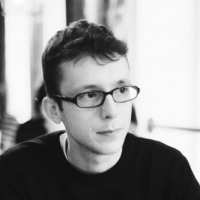
Sam Haskell, Department of Health
Sam works as the Housing and Integration Policy Lead at the Department of Health. He is the organisation's lead for housing and health/care issues. His previous role was at Public Health England (PHE) as the national lead for work, worklessness and health. Before joininh PHE, Sam worked in the Department of Health and Ministry of Justice in a variety of different roles. Between 2011 and 2013 he completed the Government graduate scheme - The Civil Service Fast Stream - as an internal candidate. Sam recently completed an MSc in Health Policy at Imperial College London. He received the Dean's Prize for his disseration on pet ownership and health in later life. He now lives and works in London with his partner.
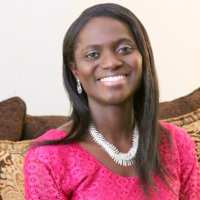
Barbara Kobson, Clinical Research Nurse, Imperial College London
Barbara completed her undergraduate degree in Nursing at the University of Southampton in 2011 and worked as a qualified nurse on the cardiothoracic wards at the Southampton General Hospital for two years. She moved to London in 2013 to take on the role of clinical research nurse at Imperial College London (Cardiovascular Research Support Unit) where she currently works. Her role involves supporting the setting-up of clinical trials within Imperial College Healthcare NHS Trust and recruiting patients to partake in clinical research. Barbara has recently completed a part-time MSc programme in Preventive Cardiology here at Imperial College London and now looks forward to starting her new role as a Cardiac Nurse Specialist within Imperial College Healthcare NHS Trust.
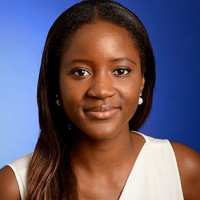 Moyo Kupoluyi, Analyst (Public Sector and Healthcare Market), KPMG
Moyo Kupoluyi, Analyst (Public Sector and Healthcare Market), KPMG
Moyo is an analyst in the Public Sector and Healthcare market of KPMG. Her role involves strategy planning for health regulators, and the management of public sector projects. Prior to starting her role at KPMG Moyo studied the Master's of Public Health (Global Health stream) here at Imperial. Moyo graduated from the University of Birmingham with a BSc in Medical Science in 2013. Between her undergraduate degree and master's Moyo also gained experience at an HIV support charity and a health communications agency.
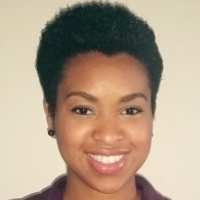 Sabrina Lamour, Project Manager, School of Public Health at Imperial College London
Sabrina Lamour, Project Manager, School of Public Health at Imperial College London
Following an internship as a lab assistant at a biotech-pharma company in Germany, during my gap year, I obtained a degree in Biomedical Sciences from Durham University. I then worked for over 3 years for UCB Pharma as a Research Associate in Immunology and Inflammation, which I left to get a PhD. I was awarded the MRC Doctoral Training studentship and completed my MRes in Biomedical Research, followed by a PhD in Clinical Research at Imperial College London in 2016, working mainly on parasitic tropical infections. During my PhD, my desire to become more involved in international public health matters grew stronger and so I decided to transition my career path away from the lab bench. I am now project manager for two HIV modelling projects at the School of Public Health (Dept. of Infectious Disease Epidemiology) at Imperial College, which I’m very excited about. My passion for science remains strong and in my spare time, I also tutor Science to secondary school pupils.
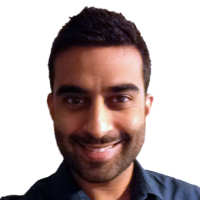 Shyam Masrani, Founder of Shyden Biotechnology
Shyam Masrani, Founder of Shyden Biotechnology
Soon after graduating with a First in Biochemistry from Imperial College London in 2011 and whilst completing an MRes in Translational Medicine (also at the college), I founded ShyDen Biotechnology – a start-up therapeutic antibody company working in the immuno-oncology space. We’re working on bispecific antibodies which harness the immune system.
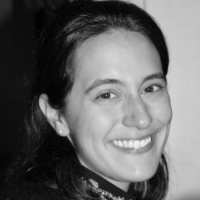 Natalie Shenker, Chief Executive, Hearts Milk Bank CIC
Natalie Shenker, Chief Executive, Hearts Milk Bank CIC
Dr Natalie Shenker trained in medicine at Oxford (qu. 2003) and initially pursued a love of developmental biology through a career in paediatric surgery. After stepping out of clinical work to study for a MSc in Developmental Biology at Imperial College, she became fascinated with the field of epigenetics and went on to win MRC funding to study for PhD in the Epigenetics Unit. This research focused on epigenetic risk markers of breast cancer, during which she extracted and characterised breast epithelial cells from breast milk samples for epigenetic research via a collaboration with a hospital milk bank. On completing her PhD, Natalie was faced with the twin frustrations of a lack of funding to continue this research, and a funding-related crisis in the provision of donor milk in London. In 2016, working with milk banking expert Gillian Weaver, she founded the Hearts Milk Bank, a social enterprise that aims to solve not only the shortage of screened donor milk, but to facilitate a range of research, including the establishment of a breast milk biobank.
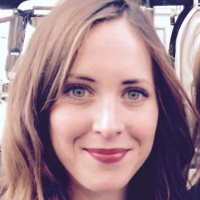 Sophie Walsh, Media Researcher and Locum Vet
Sophie Walsh, Media Researcher and Locum Vet
Sophie qualified as a vet from the University of Bristol in 2009 and spent 5 years in clinical practice before travelling to Africa to work with MAWS in Botswana running outreach clinics for those with domestic or working pets who had limited or no access to veterinary care. Upon her return she completed an MSc in Science Communication at Imperial and on graduation, started work at Windfall Films as a researcher on a natural history programme for BBC4. She continues to locum as vet though this will diminish when in March, she takes up a full time researcher position at the BBC on the team who produce 'Horizon'.
Wednesday 2 November 2016 - How to Be a Strong Applicant
13:00 - 16:00, Lecture Theatre 1, Wolfson Education Centre, Hammersmith Campus
This event is led by Professor Laki Buluwela, Faculty of Medicine Academic Lead for Postgraduate Research studies. This session is aimed at masters' and undergraduate students. Senior members of the Faculty and other parts of the College will provide you with a wealth of advice and tips for future applications. For master's students, this may feel early to be thinking about next steps. However, most scholarship applications close just before Christmas or early in the new year, so it's a good time to learn about what's available and also to start thinking about drafting an application.
Whether you plan postgraduate study or not, the advice provided at this session will be beneficial in many ways: personal statements, interview preparation, influencing skills, communicating clearly, interview presentations, body language. There will be an opportunity to ask the panel your own questions.
Monday 3 October 2016 - Professor David Nutt, 'Why Scientists Should Also Be Revolutionaries'
18:00 - 20:30, Lecture Theatre G16, Sir Alexander Fleming Building, South Kensington Campus
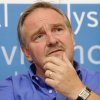 David Nutt is a psychiatrist and the Edmund J. Safra Professor of Neuropsychopharmacology in the Division of Brain Science, Dept of Medicine. Here he uses a range of brain imaging techniques to explore the causes of addiction and other psychiatric disorders and to search for new treatments. He has published over 450 original research papers, a similar number of reviews and books chapters, eight government reports on drugs and 30 books, including one for the general public, Drugs: without the hot air, that won the Transmission Prize in 2014. He is currently the President of the European Brain Council and Founding Chair of DrugScience.org.uk (formerly the Independent Scientific Committee on Drugs (ISCD). Previously he has been president of the British Association of Psychopharmacology, the British Neuroscience Association and the European College of Neuropsychopharmacology. He broadcasts widely to the general public both on radio and television. In 2010 The Times Eureka science magazine voted him one of the 100 most important figures in British Science, and the only psychiatrist in the list. In 2013 he was awarded the John Maddox Prize from Nature/Sense about Science for standing up for science.
David Nutt is a psychiatrist and the Edmund J. Safra Professor of Neuropsychopharmacology in the Division of Brain Science, Dept of Medicine. Here he uses a range of brain imaging techniques to explore the causes of addiction and other psychiatric disorders and to search for new treatments. He has published over 450 original research papers, a similar number of reviews and books chapters, eight government reports on drugs and 30 books, including one for the general public, Drugs: without the hot air, that won the Transmission Prize in 2014. He is currently the President of the European Brain Council and Founding Chair of DrugScience.org.uk (formerly the Independent Scientific Committee on Drugs (ISCD). Previously he has been president of the British Association of Psychopharmacology, the British Neuroscience Association and the European College of Neuropsychopharmacology. He broadcasts widely to the general public both on radio and television. In 2010 The Times Eureka science magazine voted him one of the 100 most important figures in British Science, and the only psychiatrist in the list. In 2013 he was awarded the John Maddox Prize from Nature/Sense about Science for standing up for science.
In this lecture, Professor Nutt will be speaking about 'Why scientists should also be revolutionaries.' Most people think that the biggest problem to scientific and medical advances is the failure of funders, governments and the public to understand the value of what they do. Professor Nutt will demonstrate with examples from his own research career and those of others, that scientists themselves are often the enemy of progress and argue that we should always be challenging ourselves to think more creatively about the future goals of our disciplines.
Thursday 21 July 2016 - Professor Beate Kampmann, 'Vaccines, Immunity and Global Child Health'
17:30 - 19:30, Lecture Theatre G16, Sir Alexander Fleming Building, South Kensington Campus
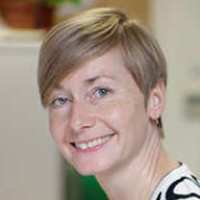
'Why did this child become seriously ill with this disease, while that child walked out of casualty with the same bug and nothing much happened?' This is one of the many questions influencing Beate's research. Leader in the fields of Paediatric Tuberculosis and Vaccinology, her research team of more than 80 scientists located in the UK and the Gambia is interested in TB/HIV co-infections, age-related immune responses to infection and vaccination and strategies for maternal immunisation.
Telling us about her 'open-lab' approach, it is our pleasure to have Beate as one of our keynote speakers.
Thursday 14 July 2016 - Professor Uta Griesenbach, 'CF Gene Therapy: Hype Versus Reality'
17:00 - 19:00, Lecture Theatre 1, Wolfson Education Centre, Hammersmith Campus
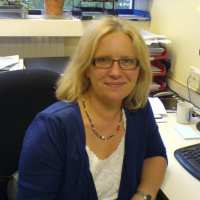 Uta Griesenbach is a Professor in Molecular Medicine at the National Heart and Lung Institute, Imperial College London.
Uta Griesenbach is a Professor in Molecular Medicine at the National Heart and Lung Institute, Imperial College London.
Uta is a Strategy Group Member of the UK Cystic Fibrosis Gene Therapy Consortium, a member of the Chronic Supportive Lung Disease Consortium of the Respiratory Biomedical Research Unit, President-elect of the British Society for Gene Therapy and is the Gene Therapy advisor on the West London National Research Ethics. Uta's research interests are related to the development of novel gene therapy-based treatments for cystic fibrosis and other inflammatory lung diseases as well as haemophilia and include vector and
biomarker development, toxicology and GMP-vector production. Uta is co-investigator on several gene therapy trials, including a recently completed non-viral Phase IIb study.
Gene therapy for cystic fibrosis (CF) has been developed ever since the CF gene was identified almost two decades ago. This lecture will provide a state-of-the-art overview of the field and highlight recent clinic trial results which, for the first time, show that gene therapy can stabilise CF lung disease.
Thursday 7 July 2016 - Professor Roger L Kneebone, 'The Art and Science of Surgery'
17:00 - 19:00, Lecture Theatre 1, Wolfson Education Centre, Hammersmith Campus
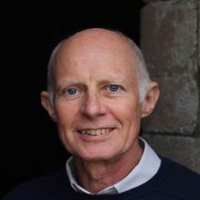
Roger Kneebone is Professor of Surgical Education and Engagement Science, Imperial College London. His multidisciplinary research builds on his personal experience as a surgeon and a general practitioner and his interest in domains of expertise beyond medicine. roger has built an unorthodox and creative team of clinicians, computer scientists, design engineers, social scientists, historians, artists, craftsmen and performers. Roger has an international profile as an academic and innovator. He is a Wellcome Trust Engagement Fellow and in 2011 became a National Teaching Fellow.
This talk frames surgery as a practice which combines science, craft and performance. This talk explores the embodied ways of knowing that take place at the intersection between hands, tools and materials. Drawing on collaborations with experts within and beyond medicine, Roger uses simulation to make unexpected connections between apparently dissimilar worlds.
Tuesday 28 June 2016 - Professor Nick Jennings - 'Artifical Intelligence and Healthcare'
17:30 - 19:30, Lecture Theatre G16, Sir Alexander Fleming Building, South Kensington Campus
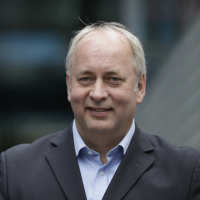 Professor Nick Jennings, CB, FREng, is responsible for promoting, supporting and facilitating Imperial College London's research performance and for leading on the delivery of the Research Strategy. He also holds a chair in Artificial Intelligence in the Departments of Computing and Electrical and Electronic Engineering. Before joining Imperial College London, Professor Jennings was Regius Professor of Computer Science at the University of Southampton and the UK Government’s Chief Scientific Advisor for National Security. Professor Jennings is an internationally-recognized authority in the areas of artificial intelligence, autonomous systems, cybersecurity and agent-based computing.
Professor Nick Jennings, CB, FREng, is responsible for promoting, supporting and facilitating Imperial College London's research performance and for leading on the delivery of the Research Strategy. He also holds a chair in Artificial Intelligence in the Departments of Computing and Electrical and Electronic Engineering. Before joining Imperial College London, Professor Jennings was Regius Professor of Computer Science at the University of Southampton and the UK Government’s Chief Scientific Advisor for National Security. Professor Jennings is an internationally-recognized authority in the areas of artificial intelligence, autonomous systems, cybersecurity and agent-based computing.
This lecture will provide an introduction to the exciting field of artificial intelligence (AI) and talk about its use in healthcare. In particular, I will talk about the foundations of building smart machines – covering topics such as reasoning and machine learning – and the applications of AI in a broad set of domains including autonomous vehicles, disaster response and healthcare. I will also discuss the wider societal implications for AI and its potential impact on jobs and the very existence of humanity.
Wednesday 9 March 2016: Where Next? PG Career Perspectives Forum
18:00 - 20:30, Lecture Theatre G16, Sir Alexander Fleming Building, South Kensington Campus
A panel of professionals from a variety of organisations and industries will give perspectives on the trajectories their careers have followed since they graduated from their Master's or PhD studies.
The evening will start with each panellist offering a snapshot of their career path so far before taking your questions from the floor. This will be followed by three breakout sessions offering further opportunity to interact with the panellists whose paths you are most interested in. Timings are as follows.
17.30-18.00 Registration
18.00-19.00 Panel discussion and Q&A
19.00-19.30 Breakout workshops
19.30 onwards Food and drink reception
Our panellists
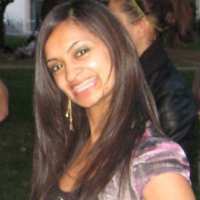 Dr Pallavi Bhatta, Senior Scientist, UCB Pharma
Dr Pallavi Bhatta, Senior Scientist, UCB Pharma
After graduating from Imperial with a degree in Biochemistry, I stayed on to do an MRes and PhD in Cell and Molecular Biology. I had no idea what I wanted to do after my PhD, so I applied for a temporary job at UCB. I loved the work that I was doing, designing novel bispecific antibodies to treat patients with severe diseases, and my temporary position soon became a permanent one. I have recently started managing a small protein expression and purification group at UCB, which is an exciting new challenge.
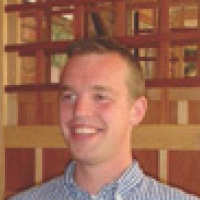
Dr Thomas Clarke, Royal Society and Wellcome Trust Sir Henry Dale Fellow
I got my first class degree in Biochemistry and PhD from the University of Warwick. After this, I moved to the University of Pennsylvania School of Medicine as a postdoctoral fellow. I was then awarded an Early Career Fellowship by Imperial and then a Royal Society and Wellcome Trust Sir Henry Dale Fellowship to start my own research group.
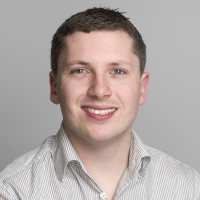
Dr Samuel Godfrey, Research Information Manager - Research Comms and Engagement, Cancer Research UK
After my undergraduate I headed straight into industry, determined to make the huge amounts of money that I was sure there. But whilst working at Pfizer I realised that I actually wanted to tackle unanswered questions – I liked exploring the unknown. And so a PhD beckoned. I loved my time as a PhD student and so I immediately followed it up with a post doc. During this time I started to realise that I much preferred talking about science to doing it, and so I left to join Cancer Research UK as a science communicator. It is without doubt the best job I’ve ever had and I even get to go on the telly.
Sam's motto: There is nothing more important than being a curious sceptic.
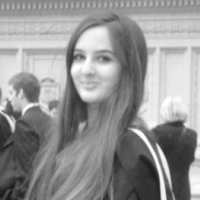
Natalie Kempston, Financial Planning Analyst, Kingston NHS Trust (Civil Service Fast Stream)
After studying a BSc in Biomedical Sciences I went on to do a Master's in Public Health, both at Imperial. After my Master's I decided I wanted to pursue a career in health policy, so I joined Civil Service Fast Stream. I've had postings in the Home Office, the Department of Health and the Cabinet Office, and am currently on a six month secondment to the National Health Service.
Natalie's motto: Approach everything with a smile.
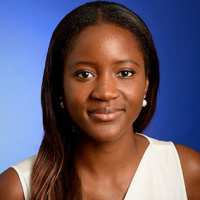
Moyo Kupoluyi, Analyst (Public Sector and Healthcare Market), KPMG
Moyo is an analyst in the Public Sector and Healthcare market of KPMG. Her role involves strategy planning for health regulators and CCGs, and the management of public sector projects. Prior to starting her role at KPMG Moyo studied the Master's of Public Health (Global Health stream) here at Imperial. Moyo graduated from the University of Birmingham with a BSc in Medical Science in 2013. Between her undergraduate degree and master's Moyo also gained experience at an HIV support charity and a health communications agency.
Moyo's motto: Live your life generously and grab joy where you can.
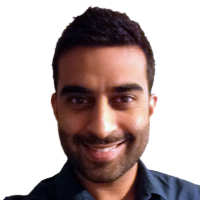
Shyam Masrani, Founder, Shyden Biotechnology
Soon after graduating with a First in Biochemistry from Imperial College London in 2011 and whilst completing an MRes in Translational Medicine (also at the college), I founded ShyDen Biotechnology – a start-up therapeutic antibody company working in the immuno-oncology space. We’re working on bispecific antibodies which harness the immune system.
Shyam's motto: You can't connect the dots looking forward, you can only connect them looking back.
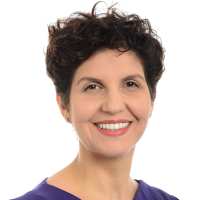
Vicky Salem, Junior Doctor Following National Institute of Health Research Clinical Academic Training Pathway
I completed my undergraduate medical training at the Royal Free Hospital and am now just coming to the end of my specialist training in Diabetes, Endocrinology and General Internal Medicine. I have followed the National Institute of Health Research clinical academic training pathway. I took time out of my clinical training to concentrate on a PhD at Imperial in 2008 - interspersed by three maternity leaves. In 2012 I was awarded a Clinical Lectureship, which allowed me to devote 50% of my time to developing research interests and the other 50% of my time to completing clinical training at the hospital. This was the springboard for a successful Intermediate Clinician Scientist Fellowship, which will allow me to concentrate entirely on my research onc I qualify as a consultant later this year, affording me the space and resource to develop my own independent research career.
Vicky's motto: As a mum of three children under six, a fulltime junior doctor and aspiring clinical scientist I have learned how to juggle and deal with competing time pressures and stressors. Most importantly I have learned how to cope with rejection (papers, grants, job applications...) and use every setback as an opportunity to make it better next time. I guess my motto would be - never give up!
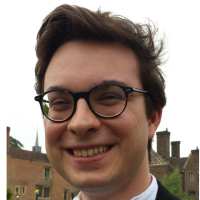
Craig Young, Final Year PhD Candidate
Craig is a final year PhD candidate (Inorganic Chemistry) researching catalyst design in collaboration with INEOS Technologies. Prior to this he worked as an investment banking analyst (UK IBD) at Bank of America Merril Lynch from 2011-2013. Craig graduated with a 1st in Chemistry from Imperial College London in 2011.
Wednesday 9 December 2015 - Professor Sara Rankin, 'Science with Bite: Sharing Your Science Beyond the University Walls'
18:00 - 19:00, Lecture Theatre G16, Sir Alexander Fleming Building, South Kensington Campus
Professor of Leukocyte and Stem Cell Biology, Sara is a Fellow of the Royal Society of Biology, a Wellcome Trust Senior Investigator and the NHLI's lead for Outreach and Public Engagement. Her research focuses on developing new drugs that activate endogenous adult stem cells and thereby enhance tissue repair. She has been the lead scientist in a number of high profile public engagement activities.
In her presentation, Professor Rankin will talk about how she has combined her research career with outreach and public engagement activities and why she believes this is important. She will give examples of some of the more innovative ways she has used to engage different audiences and the strengths and weaknesses of different approaches. If you have a passion to share your science beyond the University walls this lecture is for you.
All Faculty of Medicine postgraduate, graduate medicine and direct-entry students are welcome to attend, as are all Faculty staff. Invites for this event have already been sent out, so if you would like to attend but have yet to receive an invite, please contact Lottie Stables (l.stables@imperial.ac.uk).
Friday 2 October 2015 - Prof Gavin Screaton, 'From RNA Splicing to Haemorrhagic Viruses - Keeping Agile in a Research Career'
17:30 - 18:30, Lecture Theatre G16, Sir Alexander Fleming Building, South Kensington Campus
Professor Gavin Screaton took over as the Dean of Faculty of Medicine in March 2015. His first degree is from Cambridge after which he went on to Oxford to complete his medical studies and his DPhil in General Medicine. He is a member of the MRC Strategy Board, Academy of Medical Sciences, Association of Physicians and a Fellow of the Royal College of Physicians. He was made a Founder Senior Investigator at the NIHR and has sat on funding committees at the CRUK, Wellcome Trust and MRC. His research is supported by Fellowships awarded by the MRC and Wellcome Trust.
Through a series of research vignettes Gavin will reflect on his academic medical research journey from early beginnings to Faculty Dean and identify key decisions (or as he puts it - lucky breaks) on the way.
Wednesday 18 March 2015 - Prof Jenny Higham, 'An Idiot's Guide to Selling Yourself Abroad'
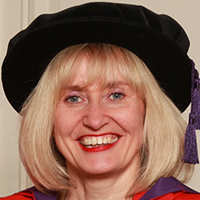 Professor Jenny Higham is Vice Dean for Institutional Affairs and Director of Education in the Faculty of Medicine at Imperial College. She is also Senior Vice Dean of the Lee Kong Chian School of Medicine in Singapore. Additionally, she continues to practise medicine, as a surgical gynaecologist at St Mary’s hospital, Paddington.
Professor Jenny Higham is Vice Dean for Institutional Affairs and Director of Education in the Faculty of Medicine at Imperial College. She is also Senior Vice Dean of the Lee Kong Chian School of Medicine in Singapore. Additionally, she continues to practise medicine, as a surgical gynaecologist at St Mary’s hospital, Paddington.
In her talk, Professor Higham presented her experiences and discoveries of starting up a new medical school: the Lee Kong Chian School of Medicine in Singapore. She has been involved in this project from its inception to her current regular involvement as Senior Vice Dean. She discussed the reasons why Imperial College and Nanyang Technical University in Singapore agreed they would unite for this collaboration and the cultural, educational and management challenges and opportunities associated with the project.
Wednesday 3 December 2014 - Prof Sir Steve Bloom, 'Making Money from Science'
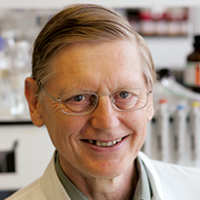 Prof Sir Bloom is the Head of Division for Diabetes, Endocrinology and Metabolism, Chair of the academic Section of Endocrinology and Investigative Medicine at Imperial College London and Lead Clinician for Clinical Chemistry at Imperial College Healthcare NHS Trust. He heads a 40 strong research team investigating the physiology of regulatory peptides in CNS and periphery.
Prof Sir Bloom is the Head of Division for Diabetes, Endocrinology and Metabolism, Chair of the academic Section of Endocrinology and Investigative Medicine at Imperial College London and Lead Clinician for Clinical Chemistry at Imperial College Healthcare NHS Trust. He heads a 40 strong research team investigating the physiology of regulatory peptides in CNS and periphery.
In his talk, Steve explained how his research group have used molecular biology & animal physiology to identify peptide-receptor interactions that control human physiology. He also described the development of tools to control the brain, and the drive to eat so that the biggest world pandemic seen so far can be halted.
Friday 3 October 2014 - Prof Debra Humphris, ‘Endless Learning and Just Another Interesting Question!’
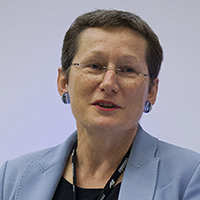 Professor Debra Humphris has been the Vice Provost (Education) at Imperial since her appointment in August 2015. In her talk, she discusses her career path, starting in professional training and progressing to a Master's and a PhD, and focuses on the benefits of these experiences, many of which were not apparent at the time.
Professor Debra Humphris has been the Vice Provost (Education) at Imperial since her appointment in August 2015. In her talk, she discusses her career path, starting in professional training and progressing to a Master's and a PhD, and focuses on the benefits of these experiences, many of which were not apparent at the time.
Watch video of Professor Humphris' talk
Thursday 8 May 2014 - Visiting Professor Nessa Carey, 'Science for Life - More Career Opportunities Than You Think?'
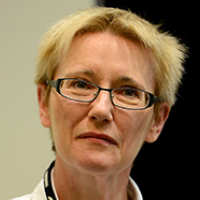 A Senior Director at Pfizer, author of The Epigenetics Revolution, and currently a Visiting Professor at Imperial College London, Nessa Carey has worked in a range of fields, including forensic science, traditional academia, three biotech roles and the large pharmaceutical sector. In her talk, she draws upon this extensive and varied experience to give her perspective on science careers, and to offer some useful advice for those embarking on their own careers.
A Senior Director at Pfizer, author of The Epigenetics Revolution, and currently a Visiting Professor at Imperial College London, Nessa Carey has worked in a range of fields, including forensic science, traditional academia, three biotech roles and the large pharmaceutical sector. In her talk, she draws upon this extensive and varied experience to give her perspective on science careers, and to offer some useful advice for those embarking on their own careers.
Watch video of Professor Carey's talk
Wednesday 19 March 2014 - Prof Dermot Kelleher, 'The Road to Translation - Why We Need Biomedical Research'
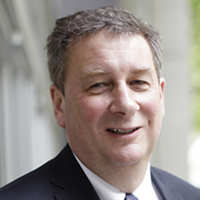 Professor Dermot Kelleher is the Vice President (Health) at Imperial College London.
Professor Dermot Kelleher is the Vice President (Health) at Imperial College London.
In his talk on the importance of multi-disciplinary engagement in modern biomedical research, he argued that the translation of knowledge into practise involves not only scientific but also regulatory, legal and entrepreneurial expertise.
Friday 27 September 2013 - Prof Andrew George, 'Advice From an "Old" Scientist'
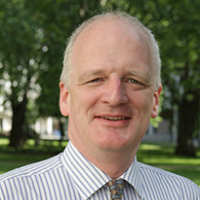 In his final public appearance as Imperial's Graduate School Director, Professor Andrew George drew upon his extensive research and leadership experience to explore the skills and attitudes which are vital to success in modern medical research.
In his final public appearance as Imperial's Graduate School Director, Professor Andrew George drew upon his extensive research and leadership experience to explore the skills and attitudes which are vital to success in modern medical research.
If you would like to see more detail about the talk, please see Prof George's PowerPoint presentation:
Professor George - Advice from an old scientist.ppt
Why Imperial?
We're ranked among the top ten best universities in the world in the QS World University Rankings 20266 making an Imperial degree highly valued by employers across the globe.
More reasons to study at Imperial


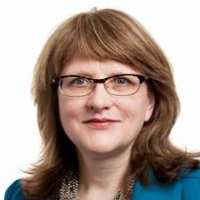
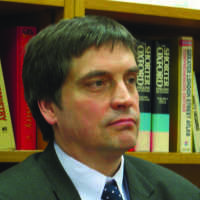


.png)